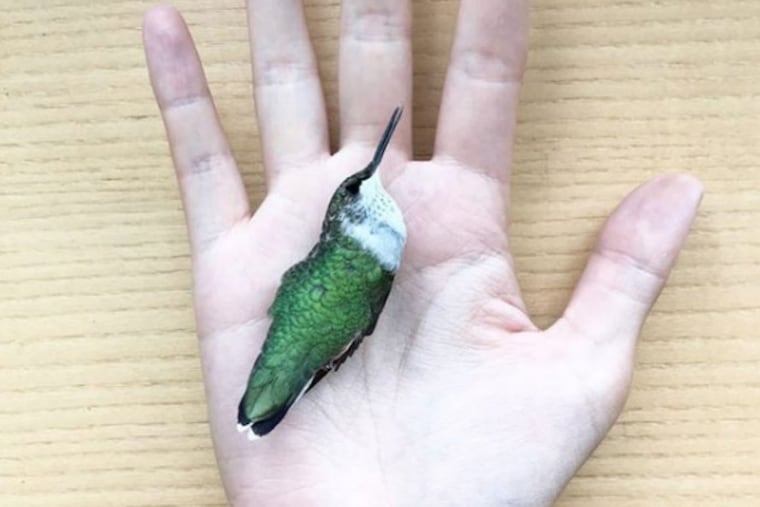Find a dead bird? The Academy of Natural Sciences would like to have it
It's all for the furtherance of science.

Xue Davis of West Philadelphia has five dead birds sitting in her office refrigerator.
They've been there for a few weeks, sealed in plastic bags.
Davis, 30, is not weird. She's simply following the instructions of Nathan Rice, ornithology collection manager at the Academy of Natural Sciences of Drexel University.
Soon enough, Rice will add the birds to the academy's collection of 20 million birds, insects, plants and more, used by researchers local and international.
Davis and Rice began communicating in mid-September, shortly after Davis found the first dead bird near the lab where she works.
"I was outside and found a dead hummingbird, which are tiny magical creatures and I kind of wanted to keep it," Davis said.
After some quick Googling, Davis learned it's illegal to hold on to a migratory bird, dead or alive, under the Migratory Bird Treaty Act. The advice recommended reaching out to local ornithologists, like those at the academy, who have permits allowing those who find dead birds to keep them for a short time until they can get them to the right people.
Since finding the hummingbird, Rice has added a yellow-bellied sapsucker, two white-throated sparrows, a flycatcher, and a woodpecker, which she stuffed in her pocket just before grabbing something to eat at a Wawa.
"I play a lot of Pokémon, so it's like real-life Pokémon," Davis said.
Davis' newfound role as a backyard scientist for the academy is far from uncommon. Rice said that during spring and fall migrations, at least one person a day stops in to drop off a dead bird to the security guard, who knows the drill.
The academy has received about 1,500 dead birds since January from across the country, with "several hundred" coming from people in the area, mostly from Center City. White-throated sparrow and common yellowthroat are a few species that Rice sees most often from Philly.
Rice's message is simple: If you see a dead bird — in good condition, of course — pick it up, put it in a baggie, and stick it in the freezer next to those containers of chili and soup until you can deliver it to the academy for the greater good of science.
Dead birds do tell tales.
By examining a dead bird, ornithologists gain insights on migratory patterns, diet, and the general environment of the feathered specimen when it was alive, said Rice.
The first step is to thaw the frozen birds, then to take down information like color and weight. Afterward, the bird's muscles and organs are removed before it is stuffed with cotton. The process, which includes drying, takes about two days.
"The cool thing about these is, we don't know tomorrow and the next year and 10 years and 100 years from now what pressing biological questions there will be. … We're building a collection so we have material to study," he said.
Willing to participate? Rice advised picking up a dead bird by its feet. Anyone afraid of catching a deadly disease need not worry, he said.
"That's a common misconception, that you can catch something from a bird," he said. "It's effectively impossible. You really need to ingest their feces to get something, and I don't imagine that's going to happen."
Of course, that does not mean you should not wash your hands after handling the bird.
Those intending to bring a dead bird to the academy also should take note of its location. Cross streets are fine, but an exact spot, which can be recorded just by snapping a picture on a cellphone, is best.
Donating birds is "hugely beneficial to science," Rice said, "science in general and to the study of birds specifically. … This is just a bonus for us. These birds, rather than let them rot and let mice and rats eat them, they'll be part of our collection for further study."